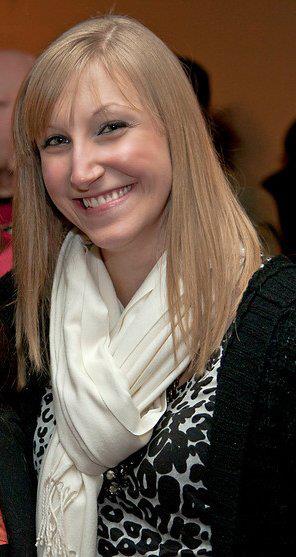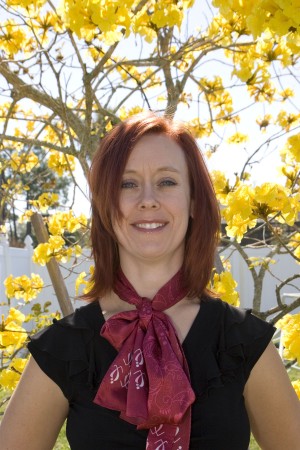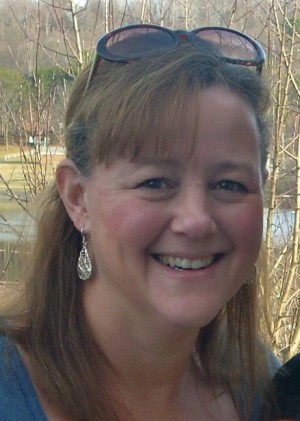
Being a female with a bleeding disorder is not easy. Our symptoms range from being mildly inconvenienced to having life-threatening bleeds. Menorrhagia (heavy periods) is the most common symptom of a bleeding disorder, and women with untreated or under-treated disorders may be at greater risk for serious complications. Unfortunately, thousands of girls and women do not receive a proper diagnosis or the appropriate medical care.
Having a bleeding disorder does not just affect the patient, but often has a direct impact on relationships. Women have reported the need to schedule intimacy as well as other life activities around their menstrual cycles. Issues of partner emotional and physical abuse have been reported due to symptoms, side effects, and cost-of-care.
That’s the bad news. The good news is that while having a bleeding disorder may or may not be central to a woman’s daily life, all women with such disorders have the right to live productive, meaningful, and fulfilling lives -Â and they are doing it!
Women have the ultimate responsibility for their self-management decisions and the resulting consequences. This includes the decision to be informed about their treatment options and the decision about how to cope. Active coping strategies include making the most out of your condition, looking for alternative ways to achieve goals, being an active participant in your health, and not allowing your condition to define who you are.Â
On the other hand, some women choose to passively cope with their disorder. Passive coping strategies include doing nothing, denying symptoms, ignoring treatment options, and allowing the disorder to become your primary identity. Such strategies may lead to feelings of anxiety, depression, fatigue, and social withdrawal.
Active coping takes effort. It requires re-evaluating perceptions about yourself and others and is much easier when a woman has the necessary emotional support from family and friends. However, it is ultimately a choice made by each individual. Thankfully, our community is full of women who are examples of active coping.
Empowering Community Voices                                                              
Laura Kinson-Curtin was diagnosed with vWD while her children were young. Prior to the diagnosis, Laura did not understand why she was often too tired to take the children to the playground. Receiving the diagnosis along with proper treatment was “good news,” because it provided an explanation for being fatigued and took away her guilt. “It made me feel like a better mother because I had an explanation for being tired.”
Laura is now empowered to take an active role and encourages others to realize that having a bleeding disorder “is livable.” She stresses the importance of making sure women are getting the proper treatment and urges others to keep things in perspective. “In every aspect of life, there are good times and bad times, but even with a bleeding disorder, we can lead a pretty normal life. “VWD is part of my life, but it doesn’t define who I am.”
Shelly Mattson, believes that having a bleeding disorder (vWD), has helped her in the development of positive values and life-long skills. As a child, she attended summer camps for children with bleeding disorders.  The counselors became her heroes and instilled in her a desire to help others. As a result of this, Shelly took on leadership roles in the bleeding disorders community and learned the art of public speaking and communication skills; both of which are utilized in her work today. Shelly adapted to life to still do what she loves to do, and like Laura, not let her disorder define her. She focuses on the things she can do, while understanding and respecting her limitations.  Shelly has also made life-long friends within the bleeding disorders community and is an advocate for support groups.  As Shelly said, “We have an under-utilized resource in this community, which is each other.”
Kimberly Philo was diagnosed with hemophilia as a child. One of the greatest lessons she learned is that everyone deals with something. “It’s true–having a bleeding disorder can get in the way at times, but people have much greater challenges,” she said. As an athlete with knee problems due to bleeds, Kimberly has adapted her exercise regime by wearing a knee brace and became proactive with her treatment. An avid bike rider, Kimberly now rides without a brace and recently completed a 7-day, 461-mile ride! She urges other women to “be smart about what they are doing” but to find an outlet they enjoy.
Laura Kinson-Curtin encourages women to reach out to others in the bleeding disorder community. She feels participation in face-to-face meetings “takes the mystery out of the bleeding and makes it easier to handle.” Shelly Mattson has also benefited from informal support groups and networking.
She suggests other women seek someone with similar symptoms to serve as a mentor, even if the only communication is by phone or online. Kimberly Philo believes women need to find a positive outlet for their feelings, because when you do you forget about your disorder for a while.
Coping and Acceptance
Everyone has bad days. Days where we want to give up and give in to our health issues. When my bleeding disorder prolonged healing from mastectomies, I chose passive coping. I didn’t want to change my attitude–I wanted to feel sorry for myself. Unfortunately, such an attitude hurt my family and me. I recently had major heart surgery and deliberately chose to focus on active coping. It has been difficult, and I have not done it perfectly, but it has made a tremendous difference in my healing, my view of myself, and my relationships.
Are women who chose to actively cope with their disorder any “better” or “smarter” than those who do not? Absolutely not. Each one of us has had times of frustration and depression. It is natural and part of life. While none of us choose to have a bleeding disorder, we can still embrace life and all it has to offer. When we focus on the positive, adapt our behaviors to meet our goals without compromising our health, seek out support from others, and open our minds to new attitudes, we can have hope that our disorders will become a part of who we are instead of defining who we are. It is possible, and it is happening within our community.
Active Coping Strategies:
- Find someone to trust. Many people need to express their feelings but can’t without trust.
- Educate yourself about your disorder and the treatment. While your doctors may be experts on your condition, you are the expert on your body. Don’t be afraid to be assertive about your care.
- Make a thoughtful list of things you can do. Focus on things that provide meaning and purpose to your life.
- Allow yourself to be less than perfect! Try to do away with self-judgment and guilt.
- Network with other people in similar situations. Support helps women realize they are not alone.
- Make time for fun!
Susan Fletcher, Ph.D., MSW, earned her MSW and Ph.D. from the University of North Carolina. She is the Principal Investigator of a research study investigating the health quality of life of men over the age of 50 with hemophilia and is studying the quality of life among females with bleeding disorders. Susan has a bleeding disorder and lives with her husband, Gregory, in Chapel Hill, North Carolina.Â



